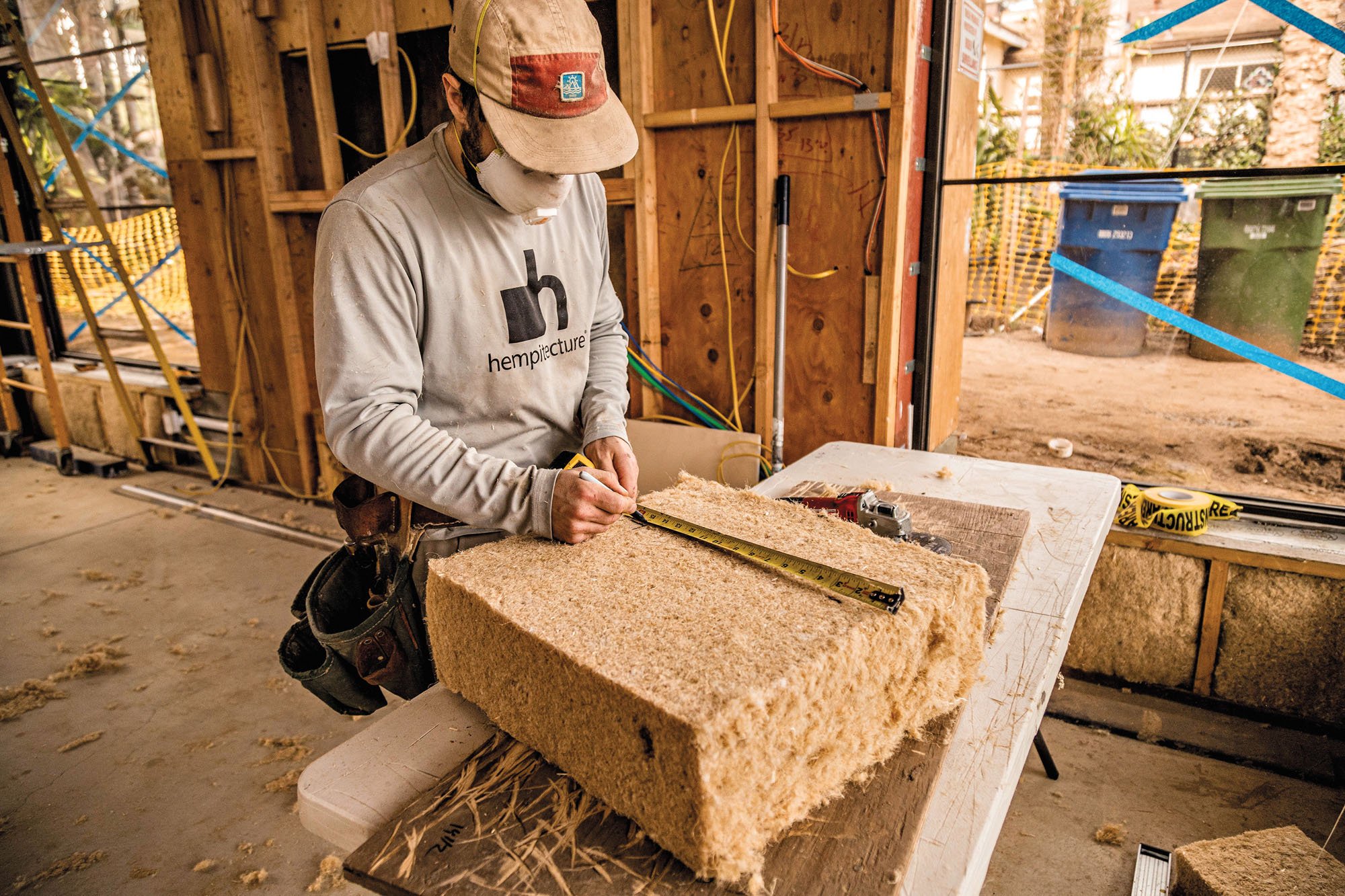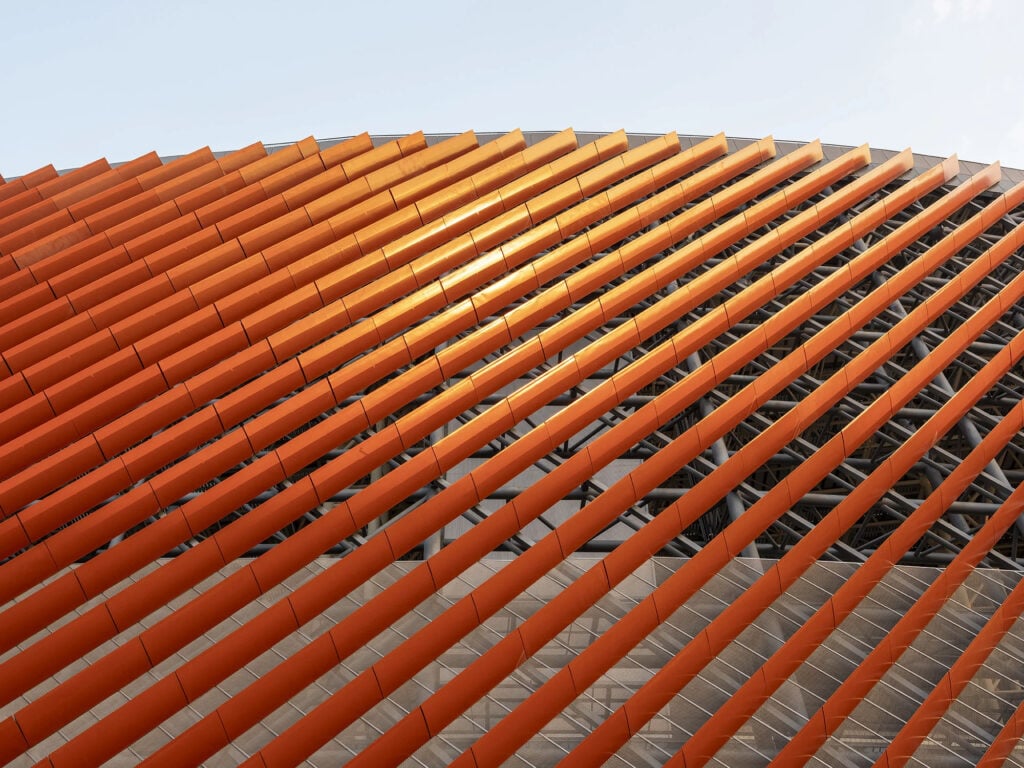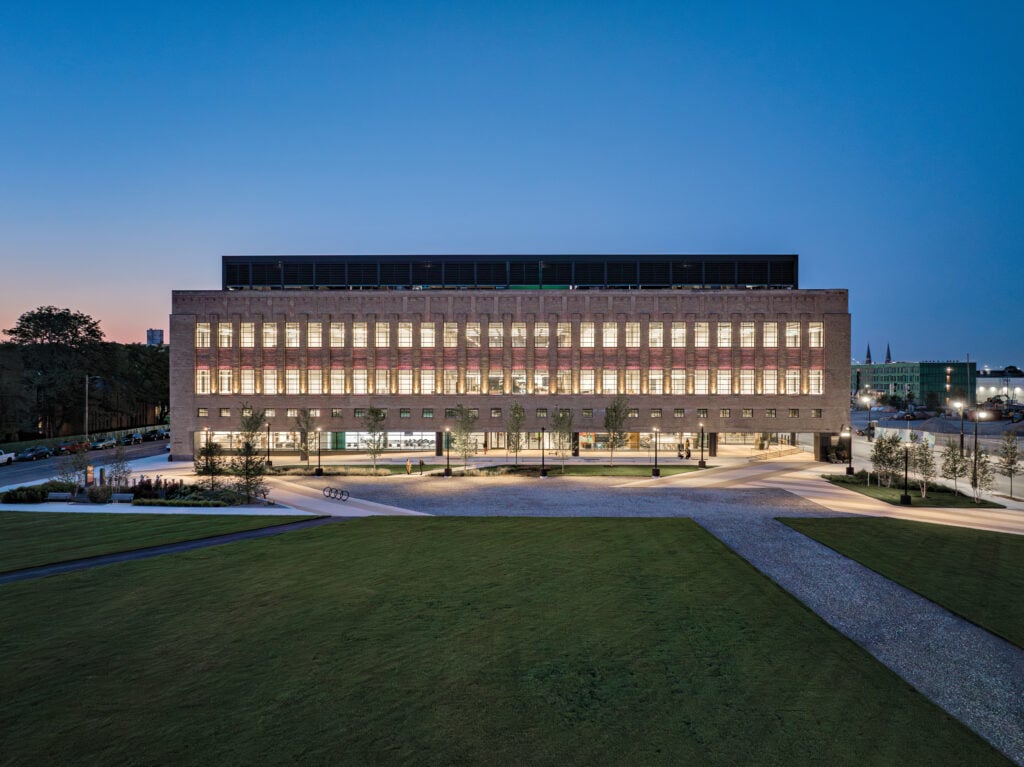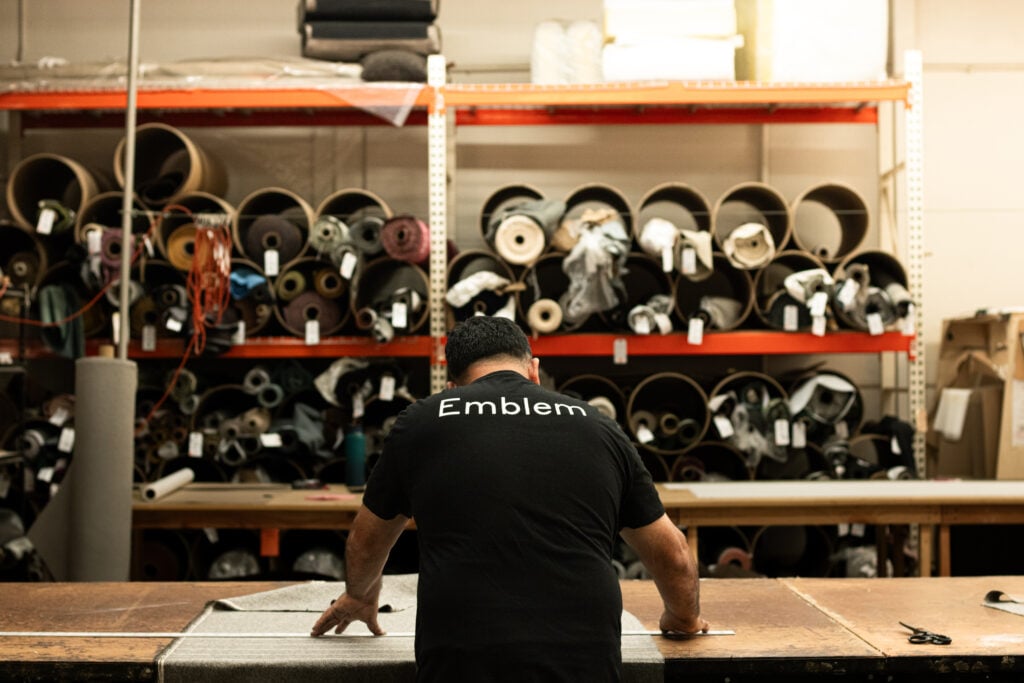
May 11, 2023
7 Sustainability Benefits of HempWool Insulation
Improving on other sustainable options, this hemp-based thermal batt insulation from Hempitecture adds carbon absorption to its list of attributes, including being biobased and safe for workers to touch. Here’s how it’s weeding out the competition.
01 RENEWABLY SOURCED
Industrial hemp plants, the insulation’s chief raw component, have a rapid growing cycle that also helps with soil regeneration, requires no fertilizer or pesticides, and needs 50 percent less water than cotton per season.
02 CARBON NEGATIVE
One acre of industrial hemp absorbs roughly 9.8 tons of atmospheric carbon as it grows.
03 LABOR-FRIENDLY
There are no irritating allergens or VOCs in the final product, which means installers can safely handle HempWool without gloves. Basic protective gear, such as eye protection and a dust mask typical of work sites, are all that’s recommended.
04 BIOBASED-CERTIFIED
Administered under the USDA’s BioPreferred Program, the label means the product’s biodegradable ingredients are verified, including the amounts—in this case 90 percent hemp, 10 percent polymer binder. It’s even compostable.
05 THERMAL EFFICIENCY
Because HempWool is a dense material, it has an R-value comparable to both mineral wool and fiberglass.
06 PEST-RESISTANT
The high concentration of silica within the panels makes them less likely than wool to attract moths, termites, and rodents.
07 MOISTURE CONTROL
Unlike traditional fiberglass options, which are made less effective by exposure to moisture, HempWool can absorb up to 20 percent of its weight in water before losing its insulating value. That helps reduce the risk of mold.
Would you like to comment on this article? Send your thoughts to: [email protected]
Latest
Viewpoints
How Can We Design Buildings to Heal, Not Harm?
Jason McLennan—regenerative design pioneer and chief sustainability officer at Perkins&Will—on creating buildings that restore, replenish, and revive the natural world.
Products
Behind the Fine Art and Science of Glazing
Architects today are thinking beyond the curtain wall, using glass to deliver high energy performance and better comfort in a variety of buildings.
Profiles
Inside Three SoCal Design Workshops Where Craft and Sustainability Meet
With a vertically integrated approach, RAD furniture, Cerno, and Emblem are making design more durable, adaptable, and resource conscious.





